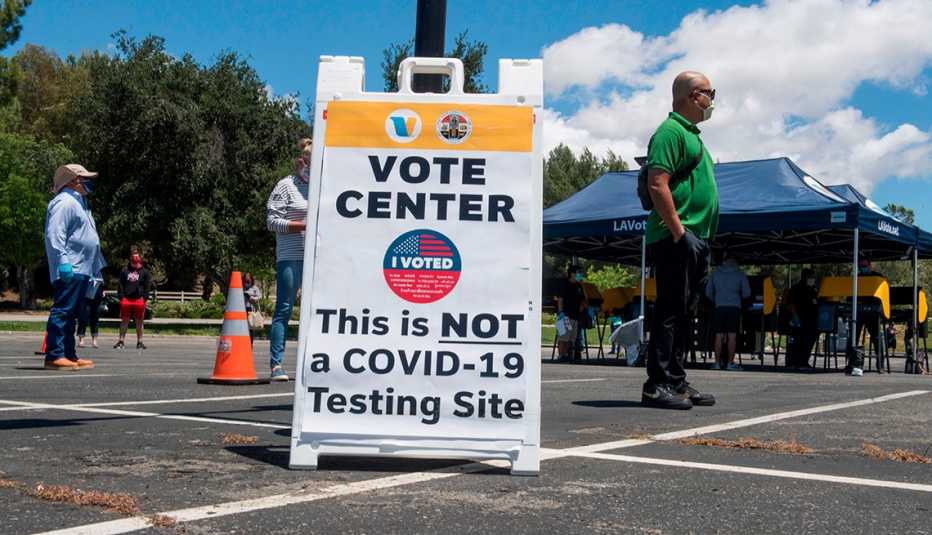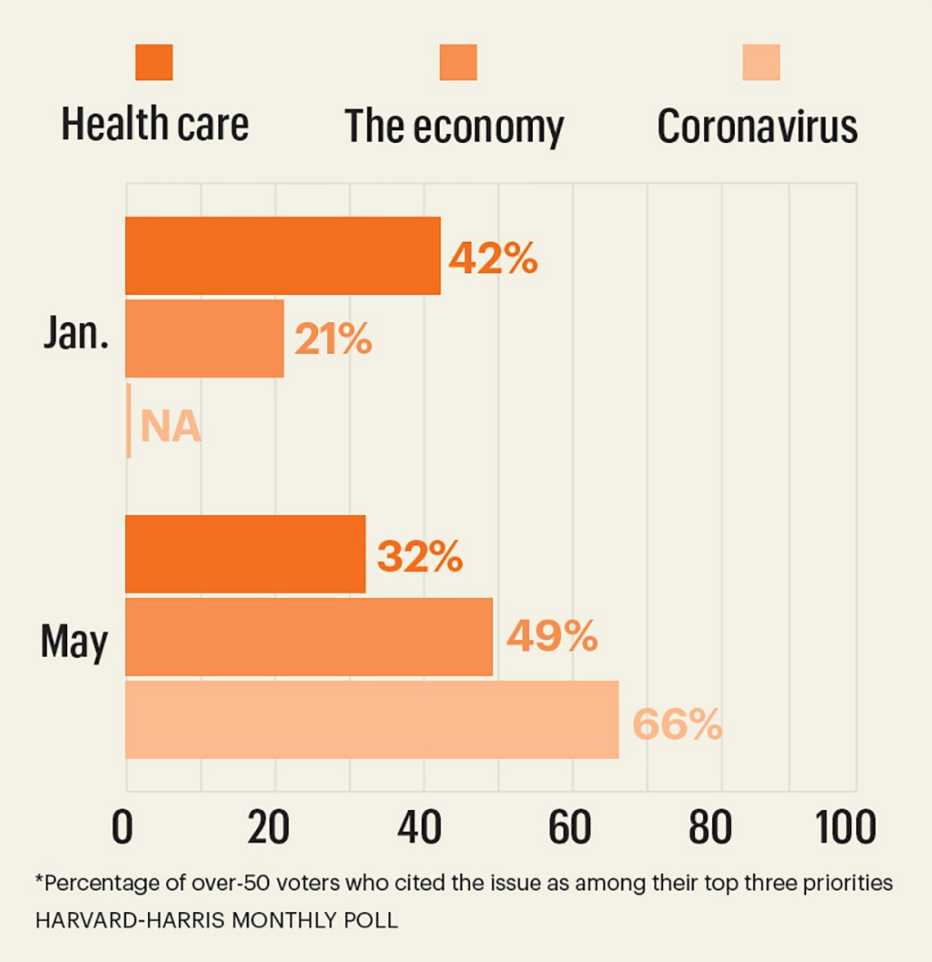Staying Fit


Older voters have long said that access to affordable health care is one of their top priorities. Then came the greatest health crisis in generations.
But the coronavirus pandemic is a complex issue. As of early July, COVID-19 had stricken more than 2.9 million people in the U.S. and cost nearly 130,000 American lives. And no one expects it to be contained before Election Day. At the same time, the pandemic has sidelined tens of millions of workers and threatened the future of countless businesses.


AARP Membership— $12 for your first year when you sign up for Automatic Renewal
Get instant access to members-only products and hundreds of discounts, a free second membership, and a subscription to AARP the Magazine.
Then, in late May, came a third national crisis, when hundreds of thousands of Americans of all ages took to the streets after the death of George Floyd, an African American whom, a video showed, a Minneapolis police officer pinned down by keeping his knee on Floyd's neck for more than eight minutes.
So, will it still be health care that drives voters in their election decisions this November? Will the cries for criminal justice reform keep up until the election? Will that iconic phrase from campaigns past — “It's the economy, stupid” — resonate again? Or, as older voters go to the polls in what's expected to be record numbers, will they focus less on individual issues and more broadly on leadership and vision?
Interviews with a cross section of older voters, plus fresh polling data, suggest the answer is all of the above: Voters are evaluating candidates through a different lens than they might have absent the pandemic or racial-justice protests.
A call for unity
"Let's face it, the landscape has changed permanently,” says Francis Hessing, a retired airline corporate trainer who lives in Anchorage, Alaska. A Democrat, Hessing, 58, says for him the issue in this campaign is honesty. “Now with the pandemic, it's even more about honesty going forward,” he says.
"To me, we have three national emergencies now,” says Chris Bowers, 56, a Dallas lawyer and self-described lifelong Republican. “The first one is coronavirus. The second one is our country's economy. And then the third is the riots and the responses.” Bowers is looking for elected officials “all the way from the local level to our president to unite our country” and wants candidates who “express clearly that everybody in America should be treated equally, fairly and with justice. That message is not being clearly articulated now."
Terry Madonna, director of the Franklin & Marshall College Poll in Pennsylvania, predicts that the election “is, number one, going to be dominated by how President Trump handled the coronavirus; number two, the status of the economy; and number three, the debate over police reform.” Still, Madonna says, health care is likely to remain a top-tier issue, particularly for senior voters.
For Darlene Walker, 65, a legal administrative assistant in Chicago, health care was always a predominant issue. The pandemic, she says, “makes me even more interested in the belief that health care should be decoupled from employment and should be universal."


































































More on politics-society
What Impact Will the Election Have on Prescription Drug Prices?
The topic remains a major issue despite the coronavirus pandemic2020 Election May Decide Future of Medicare
Growing federal deficit could force changes to the popular federal programWhat Will Happen to Medicaid After the Election?
Politicians elected to serve in the White House, Congress and statehouses will shape the future of the program